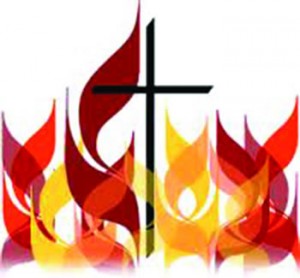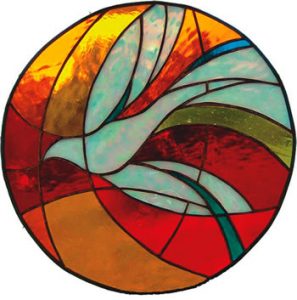Pentecost, Health Care, Ascension
Pentecost overcomes divisions, enmity
“Pentecost is the feast of union, of human understanding and communion. Yet it is evident to everyone that in our world, although we are closer to one another than ever before thanks to the development of the communications media, ... understanding and communion among people is often superficial and difficult. Imbalances remain and not infrequently lead to conflict; dialogue among generations is problematic; ... we daily witness events which seem to show that mankind is becoming more aggressive and quarrelsome; understanding one another seems too arduous an undertaking, and we prefer to remain within ourselves and focus on our own our interests”.
Harmony and unity “can only come with the gift of God’s Spirit, which will give us a new heart and a new voice, a new ability to communicate. This is what happened at Pentecost. That morning ... the Holy Spirit descended on the gathering of the disciples. It rested upon each of them and set the divine fire alight within them, a fire of love with the power to transform. Their fear disappeared, in their hearts they felt a new strength, their tongues were loosened and they began to speak frankly so that everyone could understand the announcement of Jesus Christ, Who died and rose again. At Pentecost division and estrangement gave way to unity and understanding”.
The Church is committed to Universal Health Care
Benedict XVI has emphasised the importance of establishing “real distributive justice which, on the basis of objective needs, guarantees adequate care to all. Consequently, if it is not to become inhuman, the world of healthcare cannot disregard the moral rules that must govern it”.
Archbishop Zimowski noted that “more countries, especially those with emerging economies, are moving towards universal coverage”, thanks also to “good policies that promote equity. ... Therefore my delegation strongly believes that in the endeavour to promote universal coverage, fundamental values such as equity, human rights and social justice need to become explicit policy objectives”, he said.
The archbishop made an appeal for high-income countries to show greater solidarity towards poorer nations in order to overcome funding shortfalls in health. In this context he quoted the Encyclical “Caritas in veritate” in which Benedict XVI writes: “More economically developed nations should do all they can to allocate larger portions of their gross domestic product to development aid, thus respecting the obligations that the international community has undertaken in this regard”.
The Ascension is the last act of our liberation from the yoke of sin”
“The Ascension of the Lord”, the Pope explained to faithful gathered in St. Peter’s Square, “marks the fulfilment of the salvation which began with the Incarnation. Having instructed His disciples for the last time, Jesus ascended into heaven. Nevertheless, He ‘did not separate Himself from our condition’ because, in His humanity, he drew mankind into intimacy with the Father and thus revealed the final destination of our earthly pilgrimage. Just as, for us, He descended from heaven and suffered death on the cross, so too, for us, He arose and returned to God, Who is thus no longer distant, but is ‘our God’, ‘our Father’. The Ascension is the last act of our liberation from the yoke of sin”.
Tagged as: Ascension, Health Care, Pentecost, Pope Benedict
Comments are closed.
 Entries(RSS)
Entries(RSS)